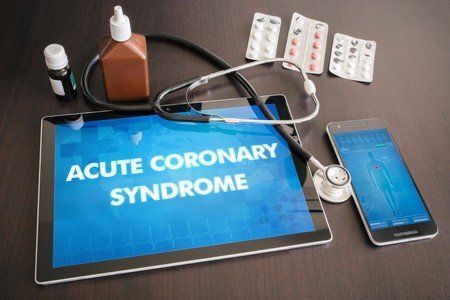Acute Coronary Syndrome and Periodontal Disease
What is Acute Coronary Syndrome?
For those who are unsure of what acute coronary syndrome (ACS) is, it is a term that covers various types of medical conditions, specifically those regarding abrupt, reduced blood flow to the heart muscle. A condition covered by the ACS umbrella is one we’ve all heard of—heart attack, indicating ACS as a serious medical emergency and the onset of heart tissue death. Immediate symptoms of ACS include chest discomfort and chest pain as well as discomfort or pain in the jaw, back, neck, stomach, or one or both arms.
Other symptoms include sweating, nausea, lightheadedness or dizziness, and shortness of breath. Any sudden onset of these symptoms must be addressed immediately, and 911 must be called as soon as possible.
Luckily, for ACS patients, ample treatment exists and preventative measures can be taken, especially by those with an increased risk whether due to family history, obesity, diabetes, hypertension, high cholesterol, or smoking. A primary care physician can help individuals understand their personal risk and what they can do.
How are ACS and Periodontal Disease Related?
As per a study recently published in the Journal of Periodontology , the existence of certain bacteria and specific bacterial combinations within the areas between the gums and teeth could explain the supposed relationship between ACS and periodontal disease. Researchers from the U.S., Sweden, and Switzerland examined 161 ACS patients as well as 161 individuals without ACS as controls.
They evaluated the subjects' periodontal health, their low- and high-density lipoprotein amounts, their serum white blood cell levels, and their high-sensitivity C-reactive protein counts. The researchers also assessed the pathogens below the subjects’ gum lines. The researchers discovered the total number of mouth bacteria was twice as high in the experimental group compared to the control group.
The ACS group specifically showed more in numbers for the streptococci bacteria Treponema denticola, Tannerella forsythensis, and Porphyromonas gingivalis. The findings specifically suggested these bacteria have a relationship to ACS and periodontal disease.
According to Dr. Stefan Renvert, the study’s lead author, of the Health Sciences Department of Sweden’s Kristianstad University, "This might be one of several explanations as to why elevated bacteria and the combination of specific pathogens in periodontal pockets can be linked to a history of ACS. We also found that the amount of periodontal bacteria results in an inflammatory response that elevates the white blood cell counts and high-sensitivity C-reactive protein levels, which has also been linked in past studies to heart disease."
Additionally, Renvert’s team found the degree of bone loss within the jaw was much greater and severe among the ACS subjects compared to the control subjects. As well, three quarters of the ACS group and 42 percent of the control group showed evidence of periodontal disease.
Are you a senior in New Hampshire looking for supplemental discount dental plan to help cover your costs? Please visit our website for more information, click here.Copyright: lculig / 123RF Stock Photo











